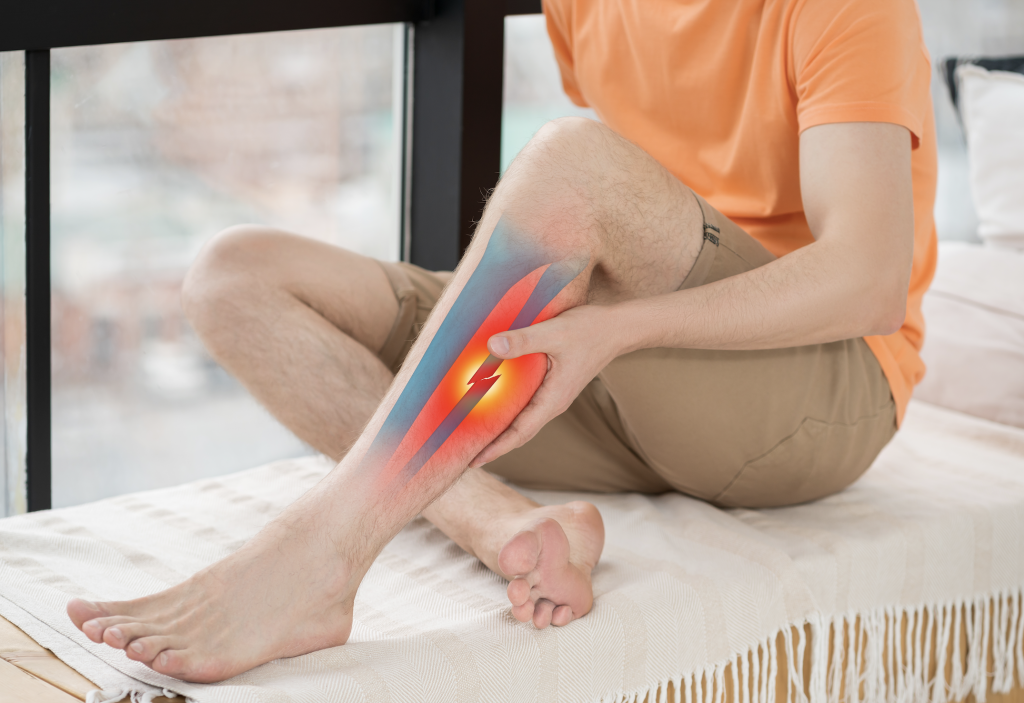Vitamins For Sports Lovers

Protein is power, especially when the recommendation for protein intake is tailored to each person’s demand. The standard 0.8g/kg/day recommended by science can fall short if you’re a consistently active person trying to live longer.1 The same happens with vitamins, so if you’re about to go for a run and are hungry for knowledge about the best vitamins for sports lovers, you’re in the right place. Let’s go.
Vitamin A

Vitamin A plays a leading role in keeping sports enthusiasts healthy and performing at their best. You need it to maintain good vision, a resilient immune system, and to keep your internal organs running smoothly.2-3 Studies show that Vitamin A facilitates hormonal signals that stimulate cell regeneration and repair muscle tissue – critical for aching athletes. Vitamin A boosts tissue growth via its active form, retinoic acid. This mechanism accelerates healing for acute wounds and bone fractures, allowing injured athletes to resume training sooner and stronger.4 But that’s not all!
Vitamin A’s central role in protein synthesis supports muscle mass development, which enhances physical prowess.5 Low vitamin A intake in athletes may increase lactate levels, diminishing performance during strenuous exercise.6 Inadequate vitamin A intake raises sports lovers’ susceptibility to respiratory illness, infections, and anemia – all obstacles to peak performance.2 As an antioxidant, vitamin A protects cells from exercise-induced free radical damage, preserving quick reaction times muscular endurance, and curbing post-workout aches. It accelerates connective tissue repair, aiding rapid muscle recovery – reinforcing resilience against sports injuries and preventing extreme soreness after simple activities like a stroll around the block!5
B-Vitamins
B vitamins are players you need in your team if you dream about breaking athletic records. Multiple dietary sources provide the B vitamins integral to athletic achievement. Thiamin (B1) in cereals and seeds enables energy production metabolism. Niacin (B3) from grains and dairy assists exercise capacity. Pyridoxine (B6) in organ meats and fish promotes muscle growth and aerobic gains. Cyanocobalamin (B12) from animal foods drives protein synthesis and oxygen-carrying. Folic acid (B9) in greens and nuts enables blood cell generation and cognitive functions. As you can see, through nutrition, B vitamins safeguard multiple biological processes – from muscle building to psychological drive – necessary for a competitive edge.5
Diving a little deeper into the science, vitamins B6, B12, and B9 have particular importance for sporty individuals like you! B6 regulates homocysteine metabolism – deficiency promotes inflammation, compromising muscle function. B6 regulates homocysteine metabolism – a deficiency that promotes inflammation, compromises muscle function, and spikes homocysteine, inflaming blood vessels and reducing muscular endurance. Ensuring intake of these essential B vitamins preserves metabolic pathways – crucial for maintaining muscle integrity, vascular health, and sustained energy reserves necessary for demanding training sessions.3 B12 and B9 stimulate red blood cell and hemoglobin generation – deficiencies can risk fatigue-inducing anemia, a critical concern given that studies show over 50% of athletes, especially vegetarian women, don’t meet dietary recommendations for some essential B vitamins. So, monitoring your B vitamin levels is wise if you want to sustain intense athletic regimens.6
Vitamin K
For athletes, vitamin K holds a special place for maintaining cardiovascular health and continuous performance gains. Intense training stresses your heart, reducing cardiac output. Studies on athletes using vitamin K dietary supplements reveal meaningful improvements to this key metric over an 8-week program.3 As an essential fat-soluble vitamin, vitamin K fuels cardiac and circulatory processes, leading to better endurance, quicker recovery, and heightened resilience against overtraining.3 Separate studies reveal inadequate vitamin K intake correlates with heightened bone turnover and fracture risk in athletes.6

Vitamin K maintains structural integrity against fracture risk by inciting bone-building osteoblast activity and mineralization. In competitive athletes, like swimmers, studies have found lower levels of the recommended vitamin K levels, so if you’re not eating enough green leafy vegetables or nuts, please consider making small dietary changes to supercharge your body before your next athletic feat!7 An adequate vitamin K intake may promote long-lasting musculoskeletal resilience and cardiovascular capacity for health-conscious individuals – essential for sustainable sports performance and lifelong radiant health.3,5
Vitamin E
As a potent antioxidant, vitamin E is crucial for sports enthusiasts – it protects cells from free radical damage associated with energy conversion and environmental exposures like pollution. It also strengthens immunity, prevents abnormal clotting, and enables cell communication.8

Exercise triggers internal free radical production – potentially causing oxidative damage if left unchecked. Unstable, reactive oxygen species (ROS) generated during physical effort can disrupt immunity, quicken muscle fatigue, and inflame muscle tissue – obtaining adequate vitamin E counterbalances this exercise-induced oxidative stress, maintaining performance and keeping muscular waste at bay.9
Vitamin E, specifically the γ-tocopherol form abundant in the diet, may dilate blood vessels and increase blood flow – advantageous for athletic performance. By strengthening cardiovascular function – mainly through relaxing the smooth muscle cells lining blood vessel walls – this mechanism leads to less constriction and reduced resistance, impeding blood circulation. Consequently, blood flows easily to working muscles – requiring oxygen and nutrients – extending endurance and power capacity.3,5
Vitamin C
Vitamin C-rich foods – like citrus fruits, kiwis, and tomatoes – offer antioxidant, anti-inflammatory, collagen-building, and immune-fortifying qualities essential for athletes to tolerate intense training. Vitamin C in these nutritional powerhouses aids athletes in quickly recovering from microtears, healing sore muscles, fighting infection risk, and maintaining joint flexibility – assuring their bodies remain resilient and healthy for consistent top-tier physical performance.5,10 As a robust antioxidant, vitamin C shields cells from destruction by harmful free radicals generated internally during physical exercise and externally via pollution or UV exposure.10
Vitamin C supports tissue regeneration by regulating inflammation and oxidative stress – it’s critical for collagen formation, a protein essential for repairing and maintaining joint, muscle, and connective tissues.4 Athletes consuming less vitamin C than recommended – based on age and lifestyle factors – may face slower recovery and compromised performance due to impaired collagen synthesis.6 Vitamin C’s fame emanates from its immunity-enhancing benefits – a competitive advantage for athletes as well! Supporting immune defenses helps athletes avoid illnesses that interrupt training and promotes iron uptake from plant-based foods, countering the risk of low iron, which can diminish endurance. With this immune and metabolic support, athletes can maintain consistent training, fuel effectively for demanding workouts, and stay fit and pain-free for peak competition.5
Vitamin D
Vitamin D is essential for athletes – it facilitates calcium absorption and bone health, ensuring joint integrity and resilience against fractures from repeated impacts. It directly supports muscle performance, nerve conduction, and immune function – all necessary for peak physical performance. Without sufficient vitamin D levels, muscles may lack strength and coordination, reactions become slower, and sickness can significantly hinder your training progress.11
Vitamin D deficiency can pose cardiovascular risks for competitive athletes, especially since intense training strains the heart – low levels may lead to left ventricular hypertrophy, impairing the heart’s blood-filling capacity between beats and reducing oxygen delivery crucial for endurance and explosive power. Severe vitamin D deficiency adversely affects heart muscle functions essential for athletic endurance and stamina – while adequate levels protect against heart changes that could otherwise compromise an athlete’s speed, power, and competitive capabilities.3 With over a billion people deficient worldwide4, and considering that Many factors influence vitamin D synthesis and absorption, sports enthusiasts should monitor their levels to stay within a healthy range.11
Targeted Nutrition as an Athletic Competitive Advantage
Now that you understand the power of vitamins to fuel your sports adventures, be cautious before starting a regime, as over-supplementing micronutrients, whey protein, or branched chain amino acids can overwhelm innate regulation and risk toxicity, which is an unnecessary risk considering the already intense physiological demands that exercise puts on your body.9 That’s why Kyla is here to help you.

Kyla analyzes blood biomarkers and health data, relying on proprietary AI algorithms to provide personalized supplementation plans tailored to each athlete’s unique biochemistry, sports demands, and dietary patterns. Unlike general recommendations, Kyla’s nutritional programs consider a range of factors from training regimens to dietary preferences, influencing ideal nutrient intake – effectively translating cutting-edge testing and AI technology into practical sports nutrition interventions that generate competitive advantages both on and off the field.
Seeking a competitive edge in sports through targeted nutrition? Kyla’s Nutrition Program is your gateway to athletic excellence. Leveraging AI to interpret your health and blood biomarker data, we design supplement strategies uniquely suited to your athletic demands and diet, providing the right nutritional balance for consistent and healthy peak performance.
References
- Antonio J, Candow DG, Forbes SC, Ormsbee MJ, Saracino PG, Roberts J. Effects of dietary protein on body composition in exercising individuals. Nutrients. 2020 Jun 25;12(6):1890.
- Vitamin A and carotenoids [Internet]. U.S. Department of Health and Human Services; [cited 2023 Nov 29]. Available from: https://ods.od.nih.gov/factsheets/VitaminA-Consumer/
- Brancaccio M, Mennitti C, Cesaro A, Fimiani F, Vano M, Gargiulo B, Caiazza M, Amodio F, Coto I, D’Alicandro G, Mazzaccara C. The biological role of vitamins in athletes’ muscle, heart, and microbiota. International journal of environmental research and public health. 2022 Jan 23;19(3):1249.
- Papadopoulou SK, Mantzorou M, Kondyli-Sarika F, Alexandropoulou I, Papathanasiou J, Voulgaridou G, Nikolaidis PT. The key role of nutritional elements on sport rehabilitation and the effects of nutrients intake. Sports. 2022 May 26;10(6):84.
- Ghazzawi HA, Hussain MA, Raziq KM, Alsendi KK, Alaamer RO, Jaradat M, Alobaidi S, Al Aqili R, Trabelsi K, Jahrami H. Exploring the Relationship between Micronutrients and Athletic Performance: A Comprehensive Scientific Systematic Review of the Literature in Sports Medicine. Sports. 2023 May 24;11(6):109.
- Moss K, Kreutzer A, Graybeal AJ, Zhang Y, Braun-Trocchio R, Porter RR, Shah M. Nutrient Adequacy in Endurance Athletes. International Journal of Environmental Research and Public Health. 2023 Apr 11;20(8):5469.
- Jakše B, Lipošek S, Zenić N, Šajber D. Olympic Cycle Comparison of the Nutritional and Cardiovascular Health Status of an Elite-Level Female Swimmer: Case Study Report from Slovenia. Sports. 2022 Apr 20;10(5):63.
- Vitamin E [Internet]. U.S. Department of Health and Human Services; [cited 2023 Nov 29]. Available from: https://ods.od.nih.gov/factsheets/VitaminE-Consumer/
- Beck KL, von Hurst PR, O’Brien WJ, Badenhorst CE. Micronutrients and athletic performance: A review. Food and Chemical Toxicology. 2021 Dec 1;158:112618.
- Vitamin C [Internet]. U.S. Department of Health and Human Services; [cited 2023 Nov 29]. Available from: https://ods.od.nih.gov/factsheets/VitaminC-Consumer/
- Vitamin D [Internet]. U.S. Department of Health and Human Services; [cited 2023 Nov 29]. Available from: https://ods.od.nih.gov/factsheets/VitaminD-Consumer/